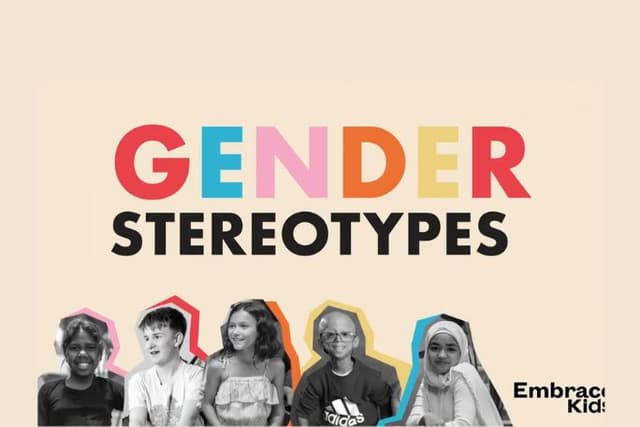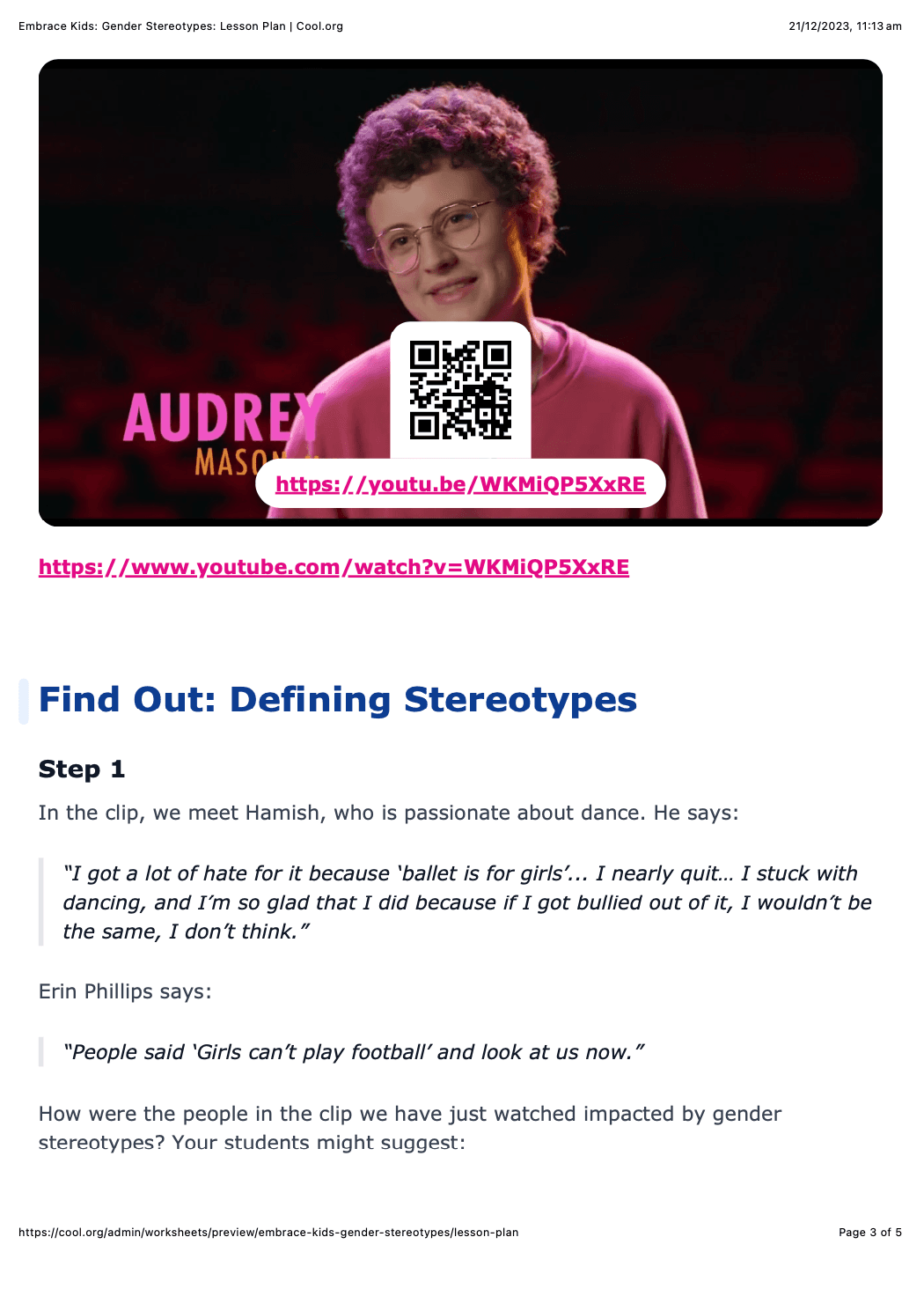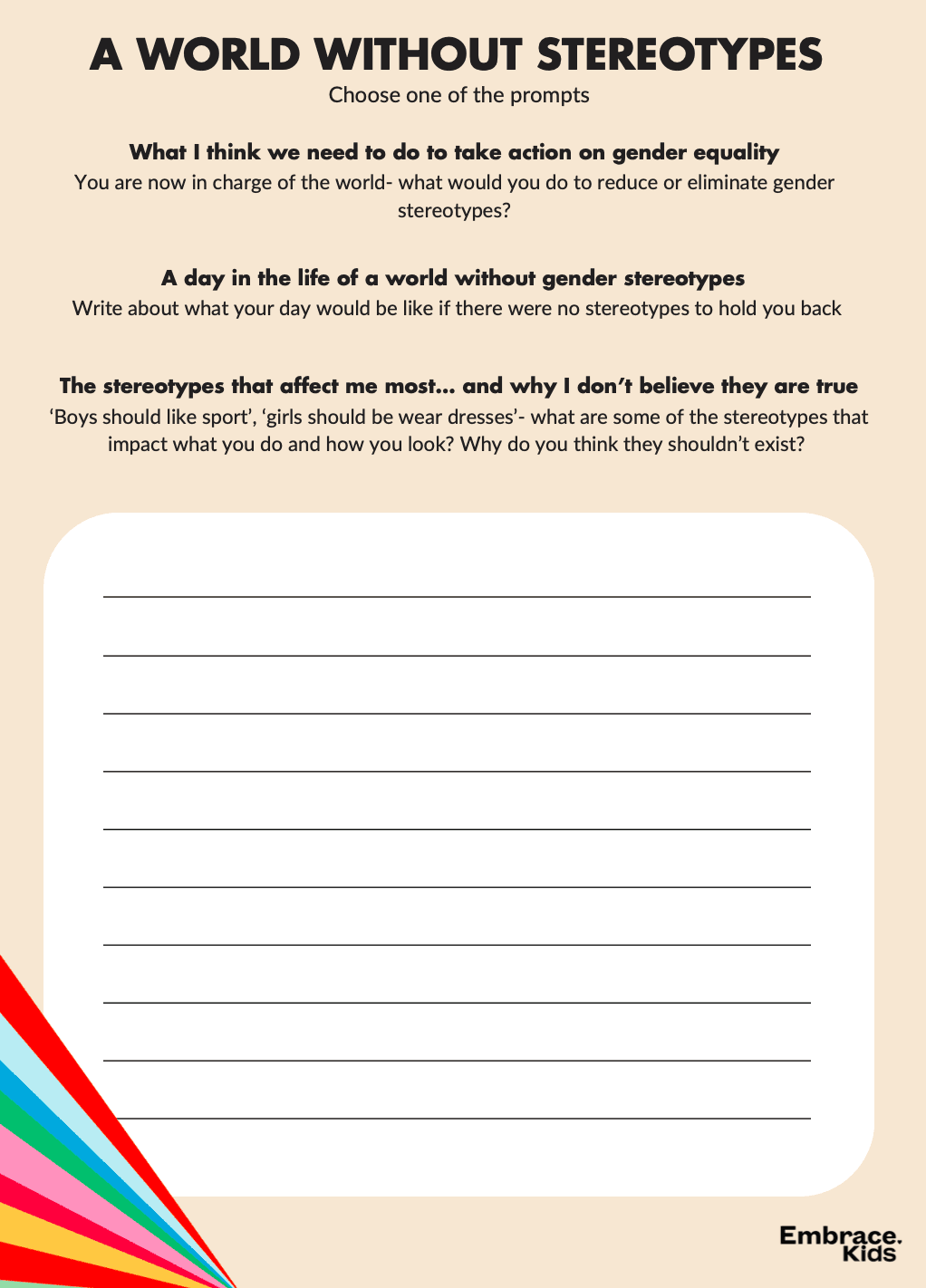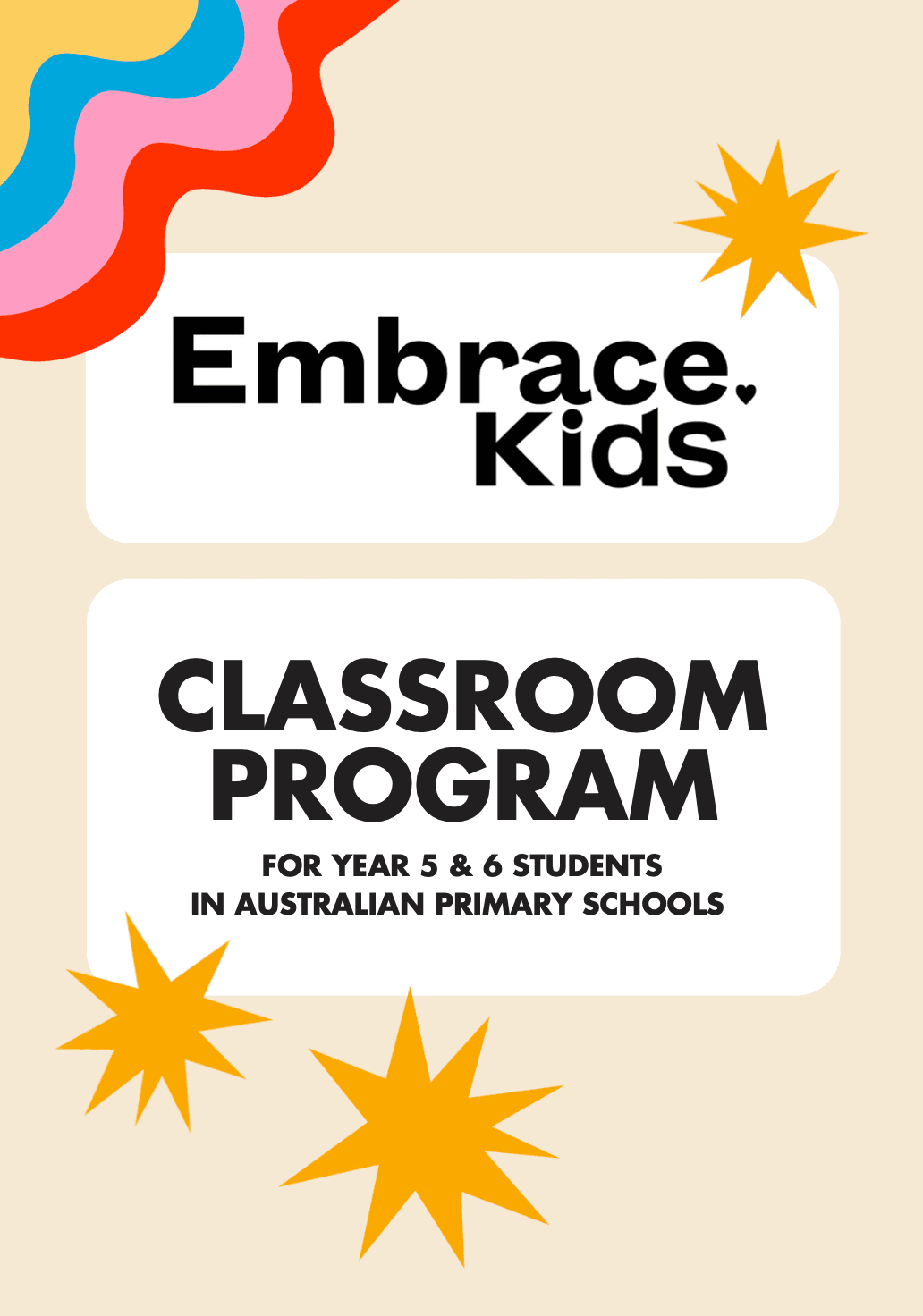
Embrace Kids: Gender Stereotypes
Lesson3 of 5 in this unit
Cool+PrimaryYear 5 - 6Health and Physical EducationHealthSocialMental HealthSocial and Emotional Learning
Summary
Lesson Guides and Printables
Lesson Plan

A World Without Stereotypes Worksheet

Embrace Kids Teacher's Guidebook
